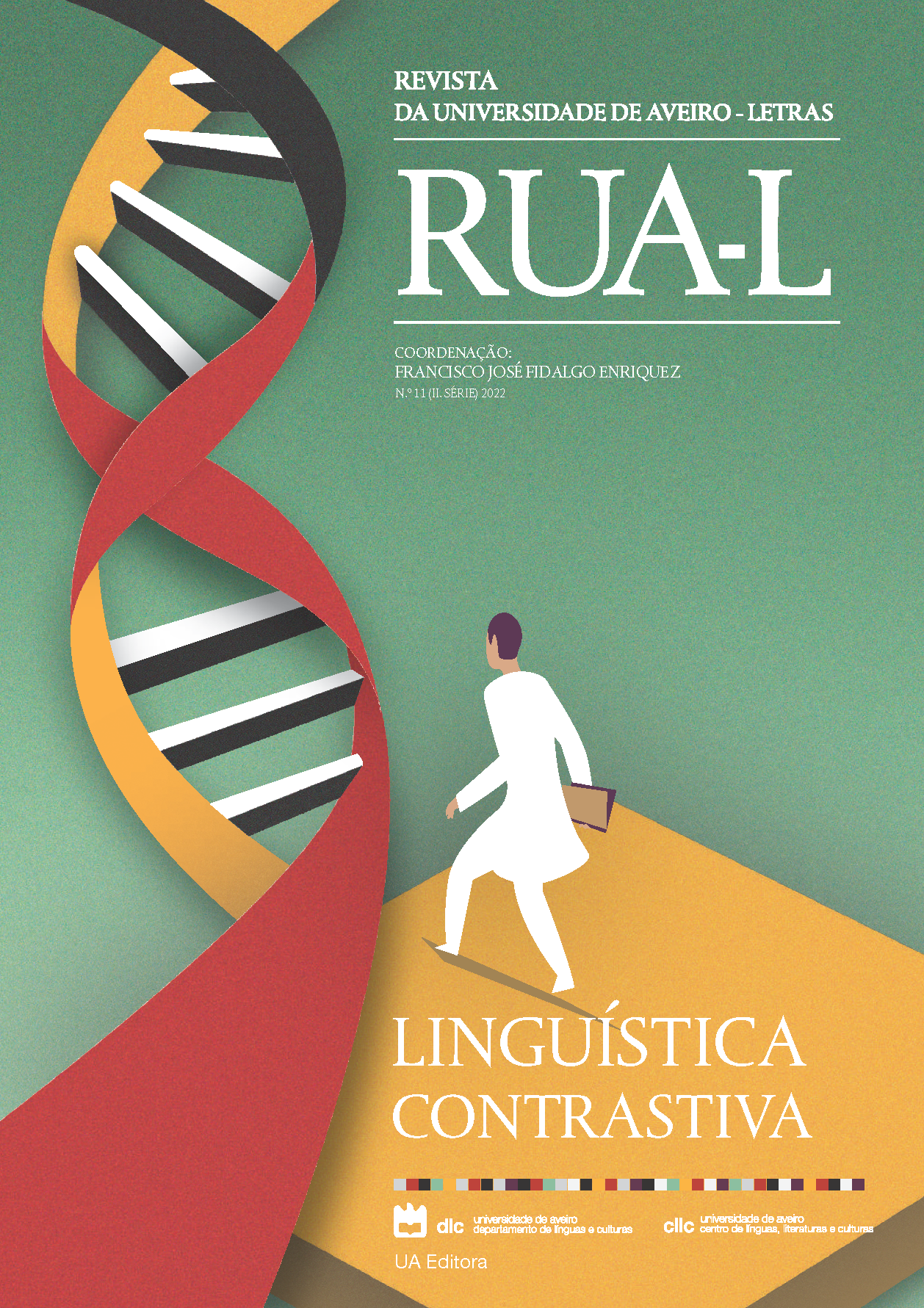Os riscos e as ações na pandemia de Covid‑19: uma análise contrastiva das notícias portuguesas e chinesas sob a análise dos frames
Resumo
Este artigo explora, sob uma perspetiva contrastiva, os frames de Risco e de Ação nas notícias portuguesas e chinesas sobre a pandemia Covid‑19. Para tal, procura‑se uma interface entre o media Framing e a Semântica de Frames, visando observar os frames a nível macro e micro representados nas notícias das maiores agências de Portugal e da China – a agência Lusa e a agência Xinhua. Foram construídos dois corpora com recurso ao software AntConc em que se congregam as notícias selecionadas das duas agências no período do isolamento da cidade de Wuhan (27 de janeiro – 8 de abril, 2020). Os resultados da pesquisa apontam para a permanência dos dois frames em ambas, bem como identificam os Riscos e Ações diferentes representadas pelas duas agências.
Referências
AGÊNCIA LUSA (2020). Agências de notícias de Portugal. url: https://www.lusa.pt/
AGÊNCIA XINHUA (2020). Agências de notícias oficial da China. url: http://portuguese.xinhuanet.com/
AYYAZ, S., ALI, G., e SAJJAD ALI, S. (2018). Manipulation through Presuppositions in the Context of International Politics. The Discourse, 4(1), 91 -103. BATESON, G. (1955). A Theory of Play and Fantasy. Psychiatric Research Reports, 2, 39 -51.
BHATTI, S. J., BILLINSON, P. P., CORNELL, L. A., DAS, A., GAMMON, C., KELLY, L. O., YANG, J., e KRISTIANSEN, S. (2022). A Country Comparative Analysis of International Print Media’s Framing of the COVID -19 Pandemic. International Journal of Communication, 16,1282 -1308. url: https://ijoc.org/index.php/ijoc/article/view/17990
BORAH, P. (2011). Conceptual Issues in Framing Theory: A Systematic Examination of a Decade’s Literature. Journal of Communication, 61(2), 246 -263. url: https://doi.org/10.1111/j.1460-2466.2011.01539.x
DAN, V. & RAUPP, J. (2018). A Systematic Review of Frames in News Reporting of Health Risks: Characteristics, Construct Consistency vs. Name Diversity, and the Relationship of Frames to Framing Functions. Health, Risk and Society, 20(5-6), 203 -226. url: https://doi.org/10.1080/13698575.2018.1522422
ENTMAN, R. M. (1993). Framing: Toward Clarification of a Fractured Paradigm. Journal of Communication, 43(4), 52 -59. url: https://doi.org/10.1111/j.1460-2466.1993.tb01304.x
FILLMORE, C. J. (1982). Frame Semantics. In The Linguistic Society of Korea (ed.), Linguistics in the Morning Calm (pp. 111 -137). Hanshin Publishing Co. url: https://doi.org/10.1016/B0-08-044854-2/00424-7
GAMSON, W. A. & MODIGLIANI, A. (1989). Media Discourse and Public Opinion on Nuclear Power: A Constructionist Approach. American Journal of Sociology, 95(1), 1 -37. url: https://doi.org/10.1086/229213
GOFFMAN, E. (1974). Frame Analysis: An Essay on the Organization of Experience. Havard University Press.
GUENTHER, L., GAERTNER, M. & ZEITZ, J. (2021). Framing as a Concept for Health Communication: A Systematic Review. Health Communication, 36(7), 891 -899. url: https://doi.org/10.1080/10410236.2020.1723048
MINSKY, M. (1974). A Framework for Representing Knowledge. The Psychology of Computer Vision, 211 -278. url: https://doi.org/10.1515/9783110858778-003
TUCHMAN, G. (1978). Making News: a Study in the Construction of Reality. Free Press.
Direitos de Autor (c) 2024 RUA-L: Revista da Universidade de Aveiro. Letras

Este trabalho está licenciado com uma Licença Creative Commons - Atribuição 4.0 Internacional.



